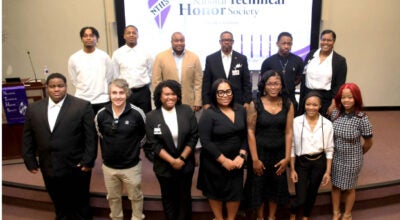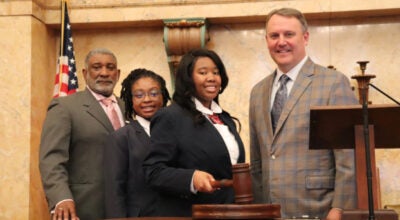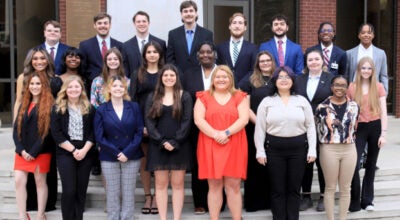Work now begins for schools and Ford NGL
Published 6:18 pm Friday, August 4, 2017
The partnership between Ford Next Generation Learning and the Vicksburg Warren School District was officially designated Thursday during a ceremony at the Vicksburg Convention Center.
Now the hard work begins, actually implementing the career academies at Vicksburg and Warren Central high schools. The schools have been working to lay the foundation for the academies the last two years, but the 2017-18 school year will be the first time they are fully implemented in ninth through 11th grades. Twelfth grade will then integrated into the system next year.
“As we have been going through the process, it has evolved,” WCHS principal Eric Green said. “We started with small pods of students as our guinea pigs. As we saw success, we have moved it up. This year, three-fourths of our students with be cohorted into academies.”
Starting in ninth grade, all student will have to chose between three career academies — ACME (Architecture, construction, mechatronics and engineering), CAB (Communications, arts and business) and HHS (Health and human services).
They will then be placed into those academies based on grade level along with a set group of teachers who will work with students specifically in those academies. The classroom layout at WCHS has also been adjusted to group students and teachers within each academy together. There will also be an assistant principal assigned to oversee each of the three academies and the counselors will work within academies to make sure students are on track.
“Our teachers are now in distinctive areas based on academies,” Green said. “We will have an ACME hall, a Health and Human Services hall and a CAB hall. Those English, math, social studies and elective teachers that are in those academies are all in the same hall. In theory, it is kind of three small schools within one school.”
The teachers within an academy will have the same planning period, which will enable them to work together to build lesson plans that work across subjects and have a distinct theme.
“What we are encouraging them to do is not just work in history on a project, but take that project and work with the math teacher and the science teacher and English teacher on one project that has to do with [their academy],” Lucy Derossette, the VWSD’s Director of Innovations, said.
The academy structure will focus on project-based learning in conjunction with business partners in the community. The goal is to teach students real life skills within their chosen career field.
“When we start to do our project-based learning within the academies, that is a key part. What we are doing is going to reflect what the workforce is doing here in Vicksburg,” Green said. “Our teachers are in communication with our business partners.”
Green said one example could be students working on a project or to solve a problem that is the same as what the engineers at ERDC are doing.
“They are actually giving us real world scenarios to base our projects around,” Green said. “That is a really great aspect of it.”
Within each of the three academies, there will be distinct pathways enabling students to explore careers they are interested in. As part of that process, the plan is to begin placing seniors in internships in their chosen field throughout the community next year.
“Starting in 10th grade, they will start taking certain elective courses if that is what they are interested in,” Green said. “We are creating those pathways that align with our businesses here in town. Based on their needs for their employees. Students will have a little more choice on the electives they choose.”
One of the electives being offered this year is an upper level computer science course.
“They will be doing computer science things within that course that a lot of people don’t get in college,” Green said. “Because it is aligned with college AP, they can get college credit.”
There will be honors courses offered within each of the three academies, but Green said students will not be limited from taking an advanced science or math class that may not fit within their chosen field. Students will also have the leeway to change academies during their four years.
“If you get into it and you say, ‘this really isn’t what I want to do and I want to move to a different academy,’ that is fine,” Green said.
The process of choosing an academy begins in eighth grade when students take a keystone course based on the 16 career clusters. Green said counselors, teachers and even students will work to make sure that eighth-graders are fully informed and make the correct decision when choosing an academy.
“One of the things we talked about doing is an eighth grade career fair for our academies,” Green said. “It gives them a better opportunity to see our students who are in our academies and our teachers who teach these classes. It gives them a more knowledgeable choice about what they are getting into when they choose an academy.”
Currently, there is no quota for the maximum number of students who can participate in an academy. Green said that is something that could change down the road though.
“This year when we are running our numbers, our health and human services pod in ninth grade is a little bit bigger than the other two, but we were able to accommodate that,” Green said. “At some point, could I foresee us having to say we can only take 250 kids in this academy? Maybe.”





